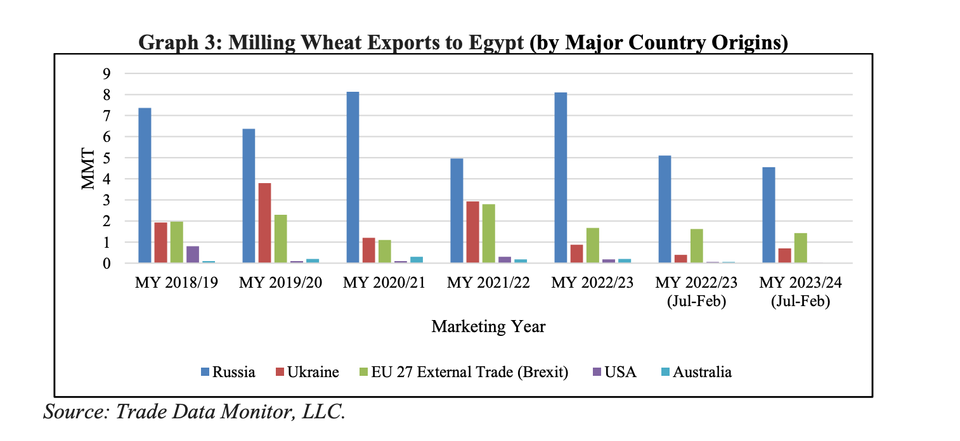Egypt's Wheat Imports Expected to Rise as Economy Stabilizes: USDA

Sign up for Ag Commodities Focus: Stay ahead of the curve on ag commodities trends.
Egypt's wheat imports are forecast to climb in the 2024/25 marketing year as the country's economy stabilizes and access to foreign currency improves, according to a report by the Foreign Agricultural Service of the US Department of Agriculture (USDA) released on Tuesday.
The report cites several factors contributing to the anticipated increase, including a recent influx of foreign currency from deals with the International Monetary Fund (IMF) and the United Arab Emirates, and the Egyptian government's decision to float the Egyptian pound. These measures are expected to alleviate the severe foreign currency shortages that have hampered Egypt's ability to import essential commodities in recent years.
"Due to the recent changes within the Egyptian economy, [FAS/Cairo] forecasts Egyptian imports for grains (such as wheat, corn, and rice) to increase in MY 2023/24, on account of more access to U.S. dollars and the stabilization of the market," the USDA report states.
Despite the positive outlook, the report acknowledges that full market normalization may take time, with some industry experts predicting it could extend into 2025 or even 2026.
Egypt, with a population exceeding 106 million and heavily reliant on subsidized bread, is one of the world's largest wheat importers. The country's domestic wheat production, while increasing slightly, remains insufficient to meet the population's needs.
The USDA report forecasts Egypt's wheat imports to reach 11.2 million metric tons in the 2024/25 marketing year, a 2% increase from the previous year. Russia, Romania, and Ukraine remain the primary wheat suppliers to Egypt, with the report noting that Egypt is a "price sensitive market" that relies heavily on these countries due to competitive prices and lower freight costs.